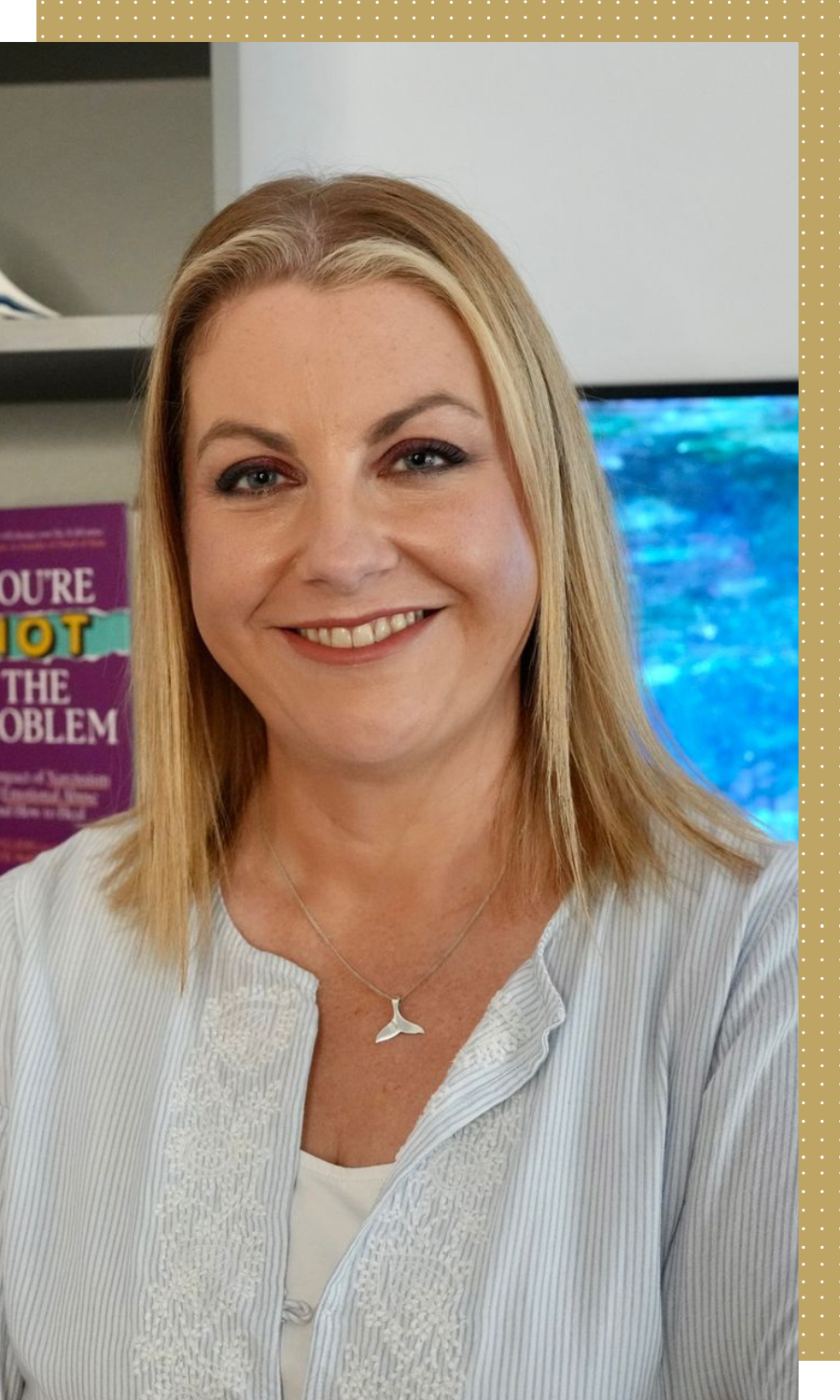Certificate in Narcissistic Awareness
understand narcissism and narcissistic personality disorder

recognised professional development you can trust


about the Certificate in Narcissistic awareness for therapists
Course 1: What is Narcissistic Personality Disorder?
Understand where the term “narcissism” comes from, how it’s been shaped by psychology and culture, and why not all narcissism is harmful. This course introduces key distinctions like overt vs covert narcissism, healthy vs pathological traits, and addresses common myths.
Course 2: The Five Main Traits of Narcissistic Personality Disorder
This course explores five core traits seen in narcissistic behaviour: grandiosity, entitlement, exploitation, motivational empathy, and impaired self-awareness. You’ll learn how these traits show up (often covertly), how they intersect, and how they affect relationships.
Course 3: Understanding Emotional Abuse
Here, we look at what emotional abuse really is — and how it quietly shapes thoughts, feelings, and behaviours. From trauma bonds to the legal landscape, this course names what’s often unseen and provides grounding for understanding the broader cycle of harm.
Course 4: Emotional Abuse Cycle Behaviours Explained
A deeper look at the behaviours that drive the emotional abuse cycle including love bombing, gaslighting, hoovering and discard. This course offers clarity for anyone who has felt confused, stuck, or unsure whether what they experienced “counts” as abuse.
Course 5: Advanced Emotional Abuse Behaviours Explained
Building on the previous course, this course explores more covert or culturally normalised tactics, such as negging, DARVO, financial control and word salad. These modules support the development of strong internal boundaries and self-trust.
Course 6: Narcissistic Parents
This course focuses on the lasting impact of growing up with a narcissistic parent. It introduces four parenting styles, the effects on identity and emotional development, and what healing can look like for adult children of narcissistic caregivers.
enroll now
Preview Lesson
Ready to continue?
who is this course for?
Are supporting a client who is trying to make sense of a difficult relationship, past or present
Want to understand the patterns of narcissistic abuse without blame or diagnosis
Work in any therapeutic capacity including coaching, psychotherapy, counselling, mentoring or social care
Work in education, healthcare or leadership and want to recognise subtle relational dynamics
Are an adult child of a narcissistic parent and seeking language for your experience
Are interested in developing emotionally intelligent, trauma informed awareness of narcissistic behaviours and the impact
a closer look at the included courses:
Can I take this course if I'm not a therapist?
While the content is not a clinical training programme, it provides a rich foundation for professionals who wish to deepen their understanding of narcissistic behaviours and their relational impact. It may be especially relevant for those supporting clients affected by emotional abuse or family trauma.
However, a professional registration is not a requisite - this Certificate is suitable for anyone seeking to better understand narcissistic behaviours, whether from personal experience, professional interest, or a combination of both.
Do I need to watch the courses in order?
The courses are designed to complement one another, but there is no strict order. You can start with the topic that feels most relevant to you and your practice. If you are new to this subject, beginning with Defining Narcissism or Understanding Narcissistic Traits may offer a helpful foundation.
When can I access the courses?
Immediately. As soon as you purchase, you’ll have access to your personal dashboard where you can start straight away. If you take advantage of our discounted bundle, all of your courses will be available straight away.
Is this a substitute for therapy?
No. These courses are designed to support insight and emotional education, not to replace one to one therapeutic work. If you are in distress, we recommend seeking support from a qualified mental health professional.
How do I verify my CPD hours?
Upon completion of the courses in the Certificate series, you’ll receive a downloadable PDF certificate. Your unique learner ID can also be found in our database for independent verification. Many learners share this information with employers and clients to evidence their professional development.






